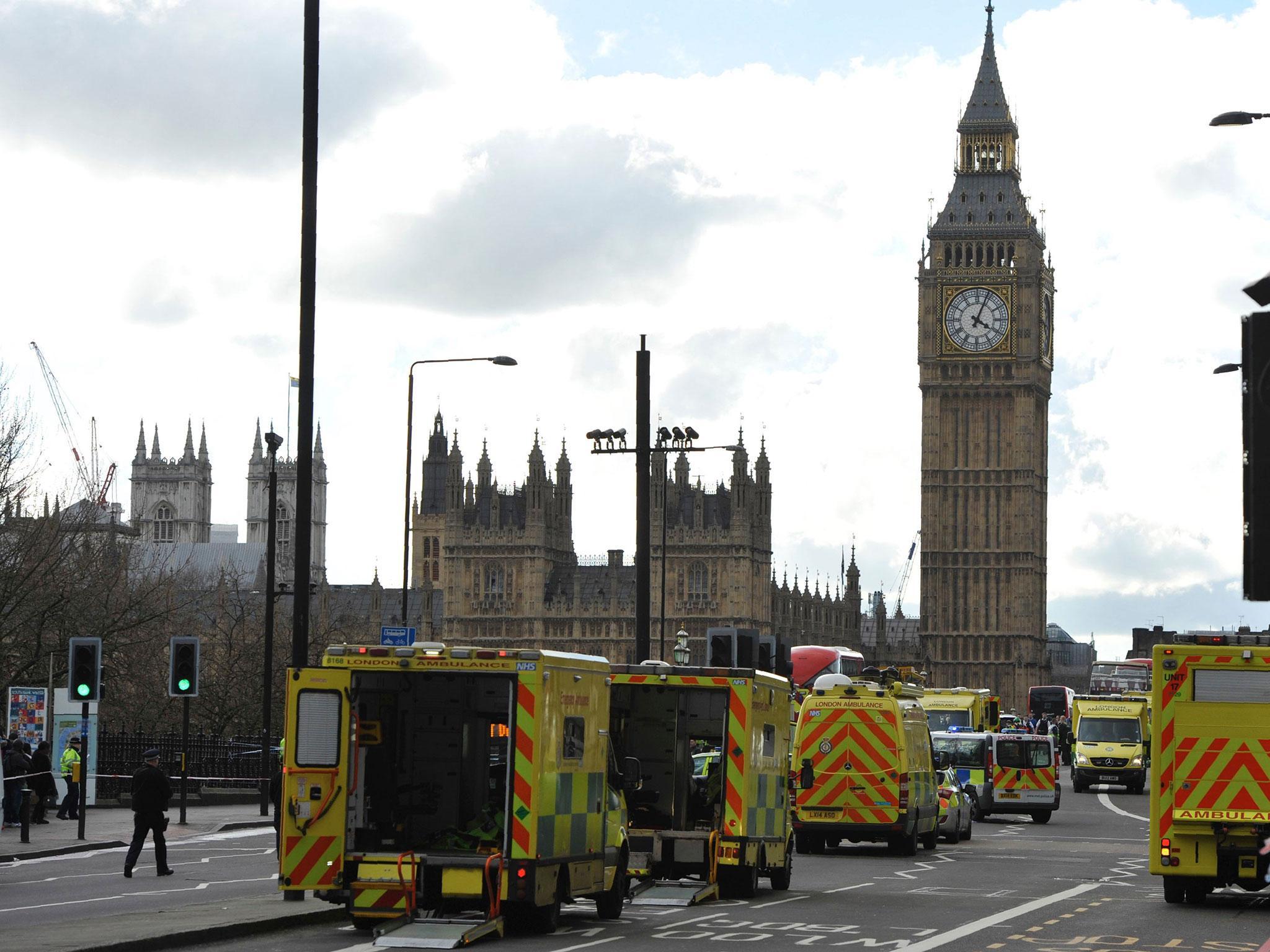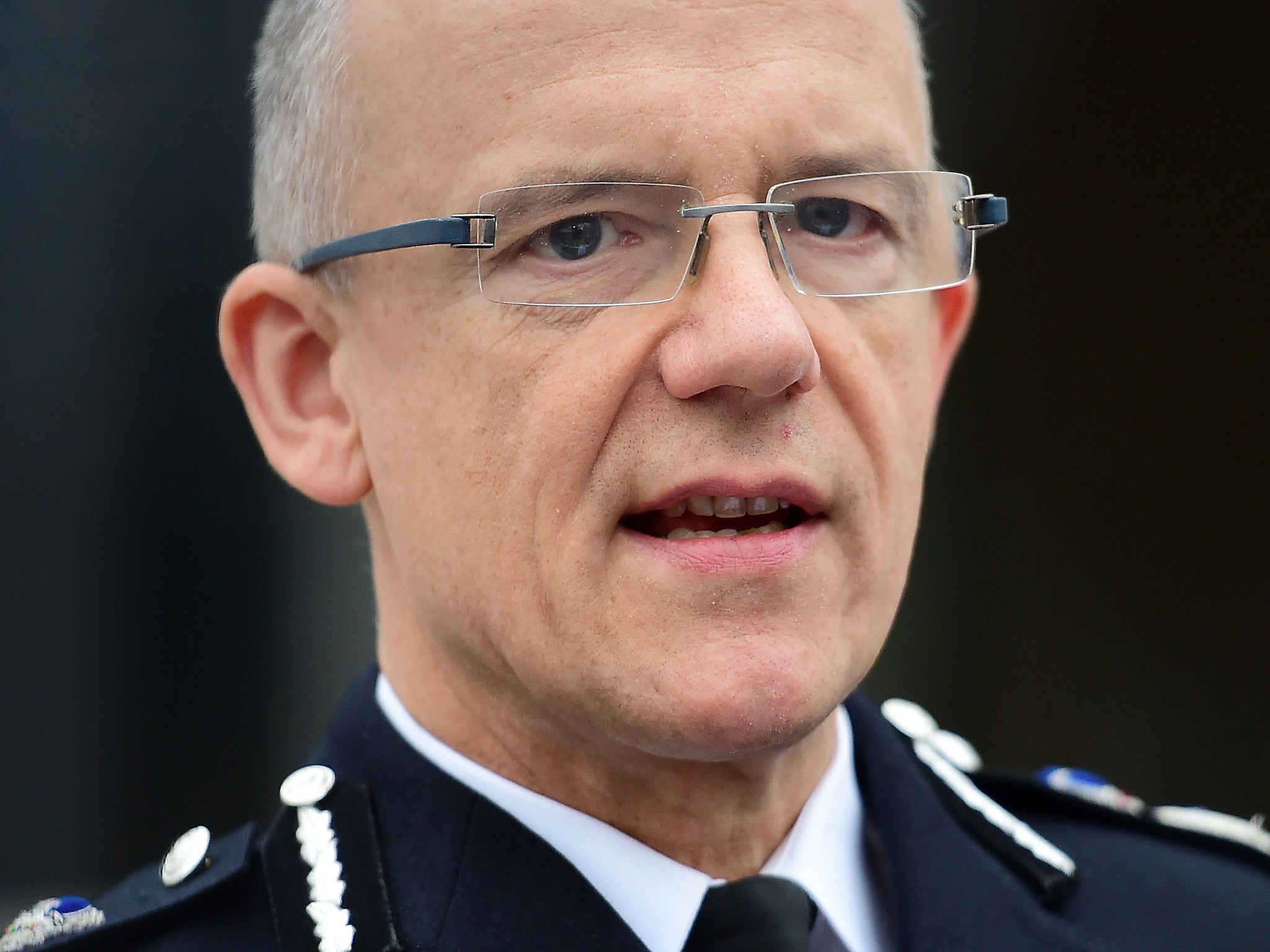Islamist attacks will threaten UK for decades, former head of MI5 warns as police say Isis is creating terror 'cult'
Head of national terror policing says security services seeing ‘dramatic’ increase in plots

Your support helps us to tell the story
From reproductive rights to climate change to Big Tech, The Independent is on the ground when the story is developing. Whether it's investigating the financials of Elon Musk's pro-Trump PAC or producing our latest documentary, 'The A Word', which shines a light on the American women fighting for reproductive rights, we know how important it is to parse out the facts from the messaging.
At such a critical moment in US history, we need reporters on the ground. Your donation allows us to keep sending journalists to speak to both sides of the story.
The Independent is trusted by Americans across the entire political spectrum. And unlike many other quality news outlets, we choose not to lock Americans out of our reporting and analysis with paywalls. We believe quality journalism should be available to everyone, paid for by those who can afford it.
Your support makes all the difference.Islamist terror will threaten the UK for decades, the former head of MI5 has warned as the methods of radicalisation and attack continue to adapt.
Jonathan Evans said Britain was facing a “generational problem” seeing extremists energised by recent attacks like Westminster.
“We’re at least 20 years into this, my guess is that we will still be dealing with the long tail in another 20 years’ time – I think this is genuinely a generational problem,” he told BBC Radio 4’s Today programme.
“I think that we are going to be facing 20 or 30 years of terrorist threats and therefore we need absolutely critically to persevere.”
Lord Evans, who now sits as a crossbencher in the House of Lords, said that when he retired from the domestic security service in 2013 he believed the UK was “over the worst of the al-Qaeda threat”.
“But then we saw the development and emergence of Isis with the same ideology and many of the same people,” he added.
The former MI5 director said the July 2005 London bombings had an “energising effect on the extremist networks in the UK” that may have been repeated by the Westminster attack in March.
It was followed by Isis-inspired massacres in Manchester and London Bridge, and then the far-right terror attack on Muslims in Finsbury Park – as well as six foiled plots.
“Since 2013 there have been 19 attempted attacks that have been disrupted and even since the attack at Westminster we are told there have been six disruptions, so this is a permanent state of preparedness,” Lord Evans said.
Mark Rowley, the head of national counter terrorism policing, said there has been a “dramatic” increase in pace with the number of threats identified.
“That number of 10 [attacks and plots] over a few months compared to 13 over four years illustrates the change in tempo that we’ve seen, which is a real challenge for us and that’s why we’re going to have to do some things differently,” he said.
Mr Rowley, who is also Assistant Commissioner of the Metropolitan Police, suggested new powers and legislation could help preventative work, as well as increased resources to bolster the huge surveillance operations needed to monitor 3,000 known extremists and 20,000 other people who could become a threat.
“It’s that wider cohort that we have to keep an eye on as well; to see if any of them that reactivate, so to speak, and become dangerous again,” he said.
The security services have been heavily criticised for failing to prevent attacks carried out by known extremists, like London Bridge ringleader Khalid Masood, who was part of Anjem Choudhry’s extremist network, and Manchester bomber Salman Abedi, who had been reported to authorities for radical statements.
Mr Rowley said police were wrestling with an “extraordinarily diverse” range of threats, adding: “You’ve got plots directed by al-Qaeda, plots directed by Isis – organised and planned at one end of the spectrum … all the way through to individuals who have been inspired by the propaganda online, radicalised perhaps – some of them who are vulnerable – and decide to pick up a weapon and act in the name of Isis.”
He said there was no “either/or” with attacks being directed by terror groups and carried out by lone actors, with terrorists drawing on advice and encouragement from organisations like Isis to “come up with their own plan”.
Mr Rowley contrasted the “tight network of wicked individuals” previously seen with the IRA and al-Qaeda with the current situation where Isis has created “more of a cultish movement where they are putting out propaganda and saying ‘anybody and everybody, act in our name and you’re part of our terrorist campaign’.”
Analysts have warned that Isis will increasingly seek to gain legitimacy from terror attacks on the West as it loses territory in Syria and Iraq, while Metropolitan Police Commissioner Cressida Dick said key defeats in Mosul and Raqqa may not decrease the risk to the UK.

Mr Rowley said security services were deeply “hurt” by the failure to protect the 36 people killed and 200 injured by recent attacks and were “redoubling efforts” to improve prevention work across all agencies including local government and the general public.
The Government is currently conducting a review of the response to this year’s atrocities, including work carried out by the controversial Prevent programme, which recent research found risked dividing communities and “alienating” Muslims.
Amber Rudd, the Home Secretary, has defended the initiative and emphasised that it targets not only jihadism but all forms of extremism.
In an article for The Sun, she accused some critics of “seeking to undermine” Prevent without offering a meaningful alternative to stop radicalisation.
“Prevent has made a significant impact in preventing people being drawn into terrorism and it is here to stay,” Ms Rudd said.
“In light of the horrific terror attacks in London and Manchester, we are reviewing all aspects of our counter terrorism strategy to make sure we keep pace with the changing terrorist threat … I am clear that when it comes to keeping our families, communities and country safe, doing nothing is simply not an option.”
The current terror threat level for the UK is set at severe, meaning an attack is considered “highly likely”.
Join our commenting forum
Join thought-provoking conversations, follow other Independent readers and see their replies
Comments